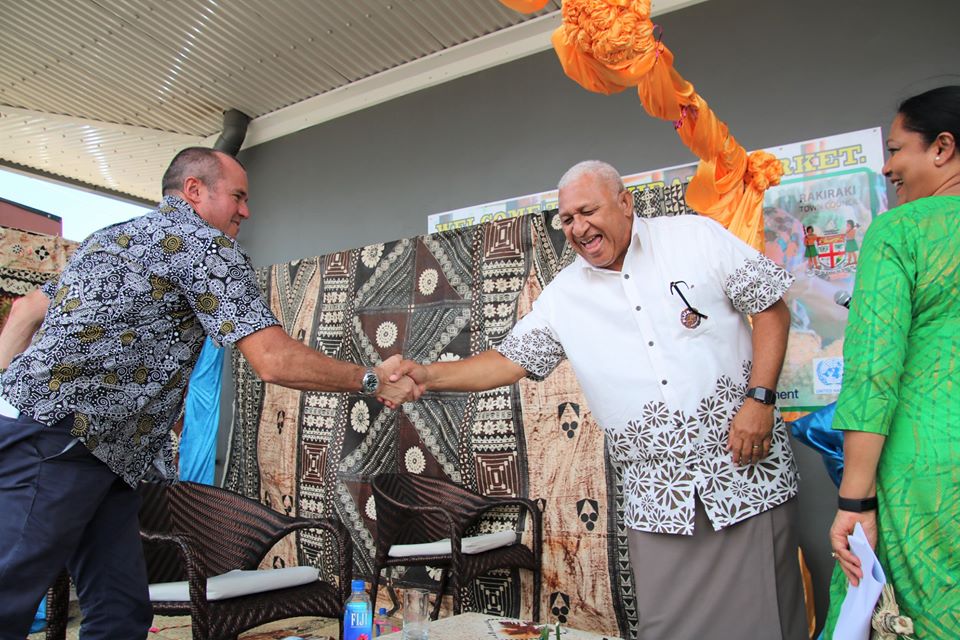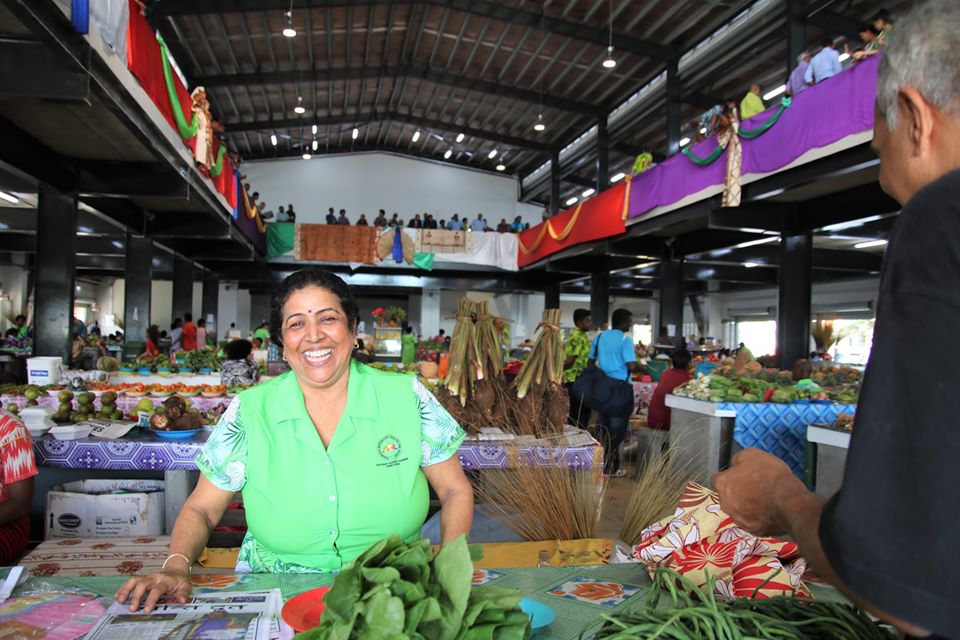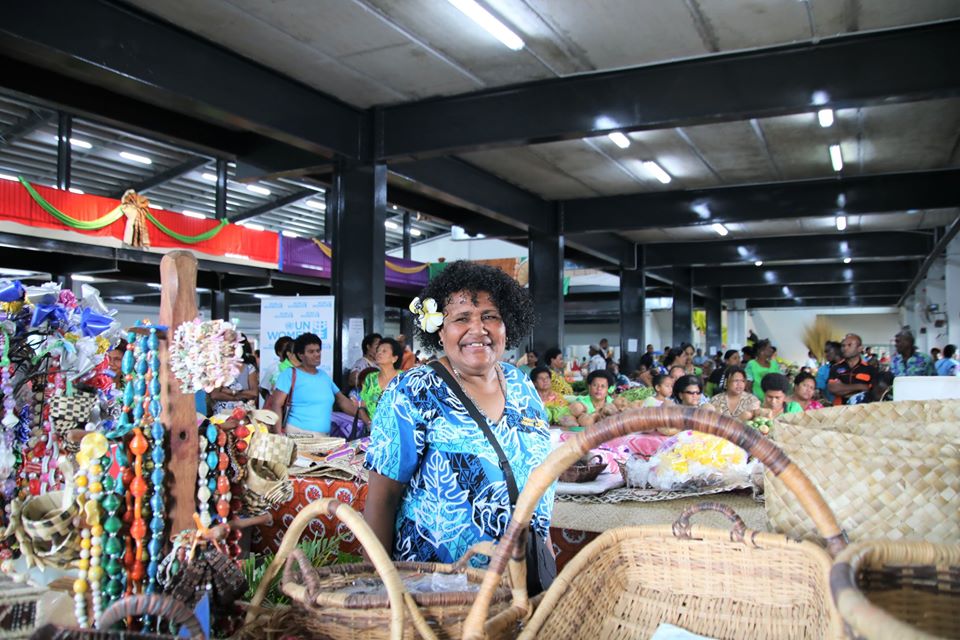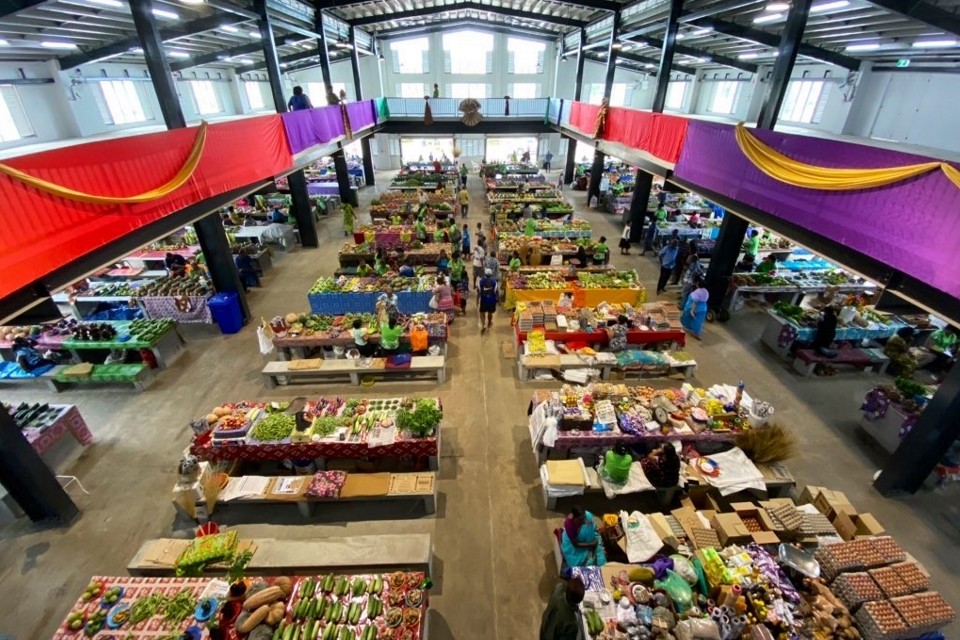Category-5 Cyclone Resilient Rakiraki Market Opens
Date:
[Press release]

Rakiraki, Fiji (June 2nd, 2020) – The people of Rakiraki today celebrated the official opening of the new Rakiraki Market by Prime Minister, Rear Admiral (RET) Josaia Voreqe Bainimarama.
The new structure is a great example of the partnership between the Government of Fiji, and the Australian Government through the Markets for Change project implemented by UN Women. The new market is Category 5 cyclone-resilient and includes a 40-bed accommodation centre for rural women vendors to stay overnight, improving their personal security and the safety of their produce.
The opening of the new Rakiraki market demonstrates the Governments of Fiji and Australia’s commitment to rebuilding after the devastation caused by TC Winston. In 2016, the people of Rakiraki were left without a market to sell their produce and rural women were left without an accommodation centre when the entire market was destroyed. Rakiraki now has a state-of-the-art municipal market together with the rural women’s accommodation centre and a resource/training centre. The new Rakiraki market is also accessible to people with disabilities.
The new market is significantly larger, with 180 more stalls than the previous market, accommodating more vendors. The Government of Australia, through the UN Women’s Markets for Change Project, invested FJ$3.2 million into this development complementing the Government of Fiji’s investment of FJ$3.1 million. The completion of the new market is a critical step towards stimulating increased economic opportunities in Rakiraki, benefitting all vendors, their families and contributing to rural livelihoods.
With women comprising 75 to 90 per cent of market vendors in the Pacific, their voices are critical in infrastructure development. Members of the Rakiraki Market Vendors Association (RMVA) were consulted throughout the design phase of the market. As a result, the market has enhanced amenities, including a market management office, improved water and sanitation and better lighting.
“Markets for Change has empowered women vendors, through the establishment of Market Vendor Associations, to influence and contribute to the design and planning of the new Rakiraki market,” Varanisese Maisamoa, President of RMVA said. “As a result, we have a market that is much more suitable to our needs, and the needs of the community. It is accessible for people with disabilities, larger, safer and has a larger number of toilets. We could not be happier – this is going to make a big difference to us.”
Australia’s High Commission, John Feakes said: “Australia remains a steadfast partner to the Fijian Government under our Vuvale Partnership. Due to COVID-19 we are today in a different world to the one we were in just a few months ago. Through the Markets for Change project we are responding to this changing world with the Government of Fiji and UN Women, providing additional tents to allow social distancing in markets, supported exchanges between the Ministry of Agriculture and Local Government to getting seeds to market vendors; and the development of a hand-washing video for market vendors.”
A UN Women project, M4C is principally funded by the Government of Australia’s Pacific Women Shaping Pacific Development (Pacific Women) program, and since 2018 the project partnership has expanded to include funding support from the Government of Canada. UNDP is an implementing partner.
“We know that most market vendors in Fiji and the Pacific are women. And we also know that markets mean business and contribute greatly to the economic livelihoods of women, their families, communities and to the nation. This is especially critical following disasters where the markets are a key place for ensuring rural livelihoods.” Sandra Bernklau, UN Women Fiji Multi-Country Office Representative, said.
UN Women’s M4C Project is a multi-year, multi-country initiative that aims to have marketplaces in rural and urban areas of Fiji, Solomon Islands and Vanuatu that are safe, inclusive and non-discriminatory, promoting gender equality and women’s empowerment.
For further information please visit:
asiapacific.unwomen.org/en/countries/fiji
www.facebook.com/unwomenpacific
www.twitter.com/unwomenpacific
Media enquiries should be directed to:
Iliesa Ravuci
Communication and Monitoring & Evaluation Officer M4C Programme
UN Women Fiji Multi-Country Office
Level 3, Kadavu House
Victoria Parade, Suva, Fiji
Tel: 3301178 ext 115
Cell: +679 9766255
Email: iliesa.ravuci@unwomen.org
[NOTE TO EDITORS: Below is a market fact sheet for your information]
| Market Name | Rakiraki Market |
| Location |
|
| Description of the market |
|
| Markets for Change Project through the Rakiraki Market Vendors Association |
· From the 2019 AKVO survey results (purposive methodology):
|
| Beneficiaries from the new Rakiraki Market |
|
General Info on M4C
UN Women’s M4C Project is a multi-year, multi-country initiative that aims to have marketplaces in rural and urban areas of Fiji, Solomon Islands and Vanuatu that are safe, inclusive and non-discriminatory, promoting gender equality and women’s empowerment. A UN Women project, M4C is principally funded by the Government of Australia’s Pacific Women Shaping Pacific Development (Pacific Women) program, and since 2018 the project partnership has expanded to include funding support from the Government of Canada. UNDP is an implementing partner.
Since 2014, Markets for Change project has had a significant impact on the lives of women market vendors. The project has supported the construction or improvement of 16 marketplaces and supported the construction of seven new women’s accommodation centres, providing a safe sleeping place for rural women vendors. More than 13,000 vendors have been trained during the project life: 3,625 trained in business management and record keeping, 4,557 vendors trained in improved agricultural practices and 5,074 vendors trained in financial literacy.


